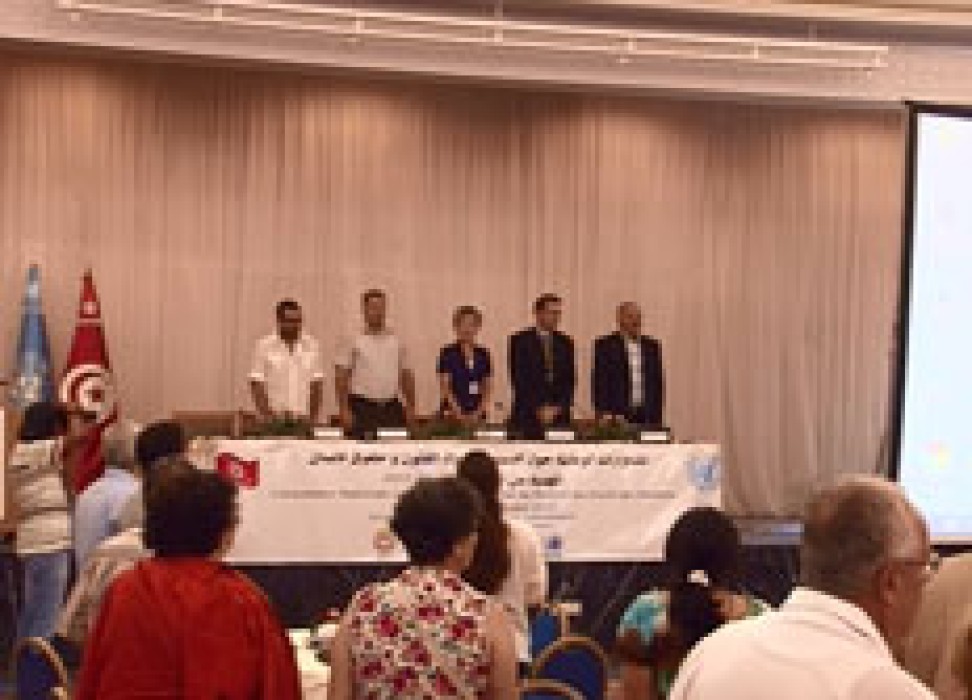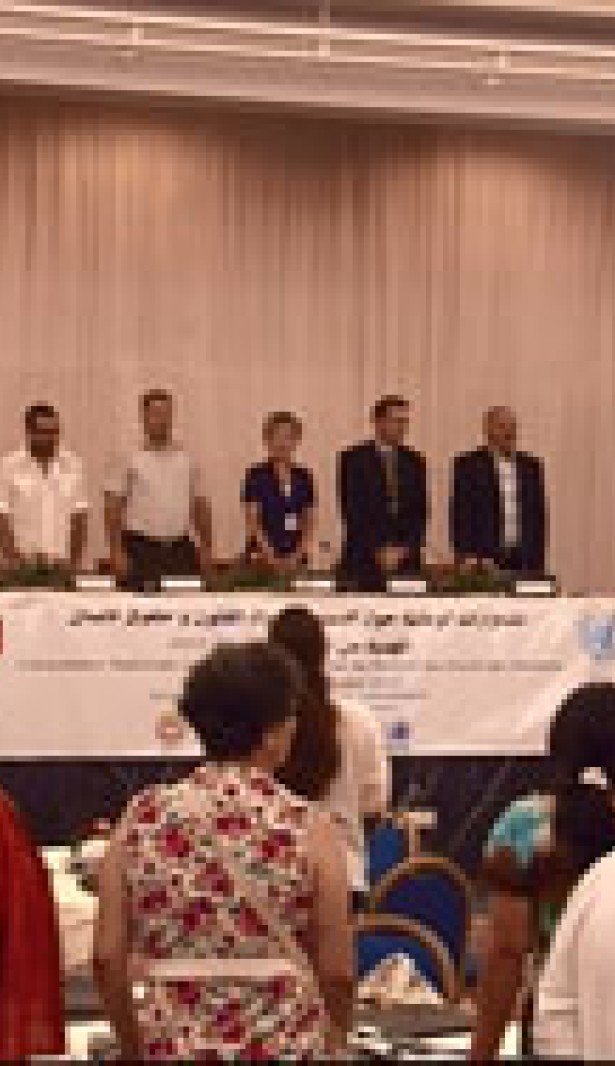Tunisia holds national consultation ahead of drafting of Constitution
02 August 2012

“Respect and the protection and realization of all human rights must be the guiding concepts of any fundamental law. Thus recognition of human rights in the Constitution establishes the legitimacy of the State, and the respect of these rights will strengthen the State”. This was contained in a speech by Kyung-wha Kang, the UN Deputy High Commissioner for Human Rights during a closing session of the Tunisian national consultation on human rights and the rule of law in the new constitution. The consultation which was held in Mahdia, Tunisia from 18 to 20 July 2012 was initiated by the Tunisian civil society and facilitated by the UN Human Rights Office in Tunisia.
The Deputy High Commissioner stated that the drafting of the Constitution is the occasion for all Tunisians, through their participation in the process, to exercise their legitimate right and create the supreme legal framework which will help to prevent future human rights violations.
Such national consultations must allow for the expression and articulation of priorities and a complete review of certain concepts at the unique moment in time for Tunisia, and observing that the people were fully involved in the art of governing.
She outlined how the Tunisian civil society organisations have played a central role since the start of what has now been termed as “the Revolution of Freedom and Dignity”.
A revolution that inspired the entire world, and continues to do so within the larger framework of democracy, during events, the civil society has fully undertaken its rightful role as watchdog and its role of being a force for change.
For example, the representative of Tunisia’s largest labour union UGTT argued that: “[his] organisation is not seeking to compete with political actors who are drafting the constitution but rather play a proactive role in balancing out views and expectations from the kind of democratic state [Tunisians] wish to build”.
The Deputy High Commissioner Kang underscored the importance of such consultations, with the involvement of the public and civil society which strengthens the national dialogue. “Managing this crucial step well, will represent a big step for all Tunisians towards national reconciliation”, she added.
“Civil and political rights, such as the freedom of speech, of assembly and of association as well as the freedom of thought and religion should be the cornerstone of every constitution”.
Limitations to these rights should only be exceptional and in accordance with international law, especially with the International Covenant on Civil and Political Rights, which Tunisia has ratified.
As a freedom of expression defender put it: “cultural values must not be used as an easy way out to promote and justify systematic censorship practices by the state”.
The Deputy High Commissioner Kang underlined the importance of including the independency and impartiality of the judiciary. This she points out, should equally guarantee the independency of the national human rights institutions and allow civil society organisations to freely carry out their activities without infringement of their rights.
This view was echoed by Mokhtar Trifi, honorary and former President of the Tunisian League for Human Rights, who appealed for the creation of an independent Higher Judicial Council to be elected by the judges and not appointed by the government.
Kang reiterated the importance of a constitutional right to equality and non-discrimination between men and women. In the words of a law professor and gender specialist: “women are at risk of being marginalised in the constitution-building process and the democratic transition as a whole, even if they took an equally active role to men in the uprising”.
The Mahdia Declaration, stressed that "the Tunisian Revolution started the process of freedom to build a democratic system that gives Civil Society the right to participate in shaping the future of the Country and consolidates its central role as a power of proposal and civic and constitutional alert contributing to the adoption of a civil democratic constitution based on the values of freedom and dignity [. . .], and on respect of the legitimacy of the National Constituent Assembly entrusted with the adoption of the Constitution. "
2 August 2012

VIEW THIS PAGE IN:
